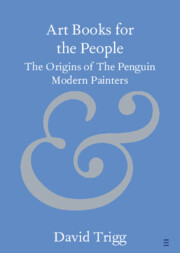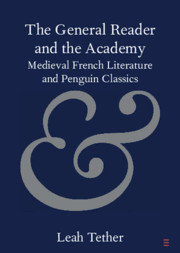Refine search
Actions for selected content:
2 results

Art Books for the People
- The Origins of The Penguin Modern Painters
-
- Published online:
- 22 July 2025
- Print publication:
- 21 August 2025
-
- Element
- Export citation

The General Reader and the Academy
- Medieval French Literature and Penguin Classics
-
- Published online:
- 11 May 2019
- Print publication:
- 30 May 2019
-
- Element
- Export citation
